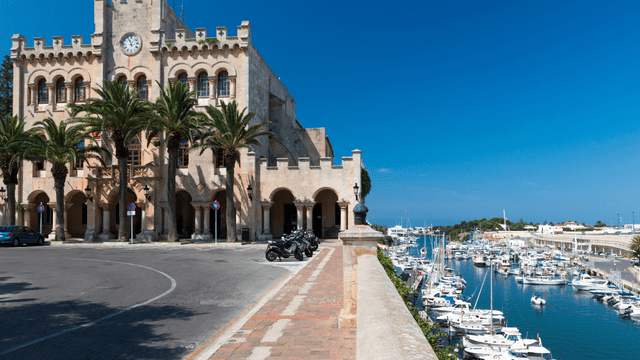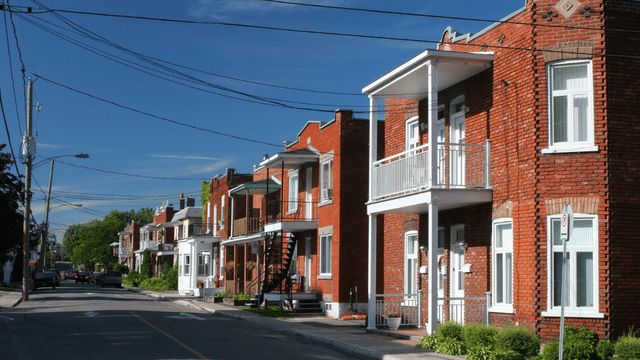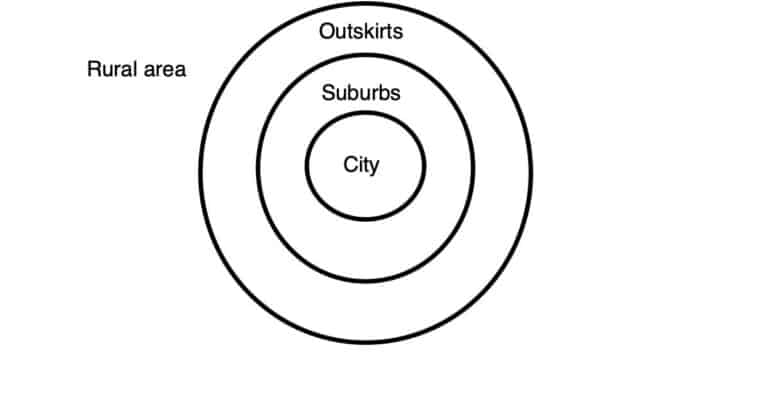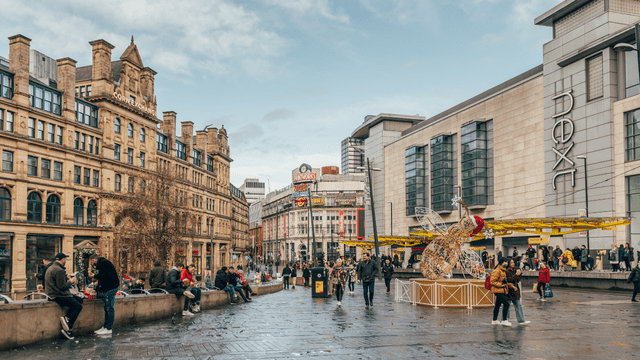👇 Take this lesson with you! 👇
In this lesson, I will show you some advanced vocabulary and natural English to impress the examiner when you talk about your hometown in IELTS Speaking.
You will learn:
- What to Talk About
- Useful Vocabulary and Grammar
Also, I will show you how to combine basic vocabulary with some advanced phrases.
One of the secrets to succeeding in IELTS Speaking is to use natural, spoken English.
You should avoid
- too much overcomplicated vocabulary
- poetic vocabulary
- clichés or overused phrases
Table of Contents
IELTS Speaking Topic: Hometown

How long you have lived in your hometown
- I come from {country} and I was born and bred in {hometown}
- I was brought up in {hometown}
- I was raised in {hometown}
I come from England and I was born and bred in Manchester
I was brought up in Manchester
I was raised in Manchester
To be born and bred = to be born and raised (in a place)
Grammar Point
If you still live in your hometown, you can use the present perfect and / or the present perfect continuous
I’ve lived here for 20 years
I’ve been living here for 20 years
A nice expression is ‘odd + number’ which in this context means ‘approximately’.
Note is only used for larger numbers like 20, 30, 40 and so on.
I’ve been living here for 20 odd years
Another nice expression is ‘for the best part of’ which in this context means ‘most of that time’.
I’ve been living here for the best part of 5 years
Grammar Point
If you no longer live there, you should use the simple past
I lived there for 20 odd years and then moved to London
I lived there for the best part of 20 years and then moved to London

Hometown size
Of course, you can use simple adjectives to describe size, such as,
It’s a small town
I live in a big city
However, you can also make this more impressive by using simple adverbs to describe those adjectives.
Here are some examples:
It’s a pretty small town
It’s a fairly little village
It’s a somewhat small city
It’s a really big city
You can also use more emphatic adjectives like the following:
It’s a vast city (=very big)
It’s sprawling city (=spread over a large area)
See this lesson to learn more vocabulary to describe cities.

Hometown location
- It’s in the north of {country}
- It’s in the centre of {country}
Manchester is in the north of England
Notice if you describe location in relation to another city, we would say,
- It is north/south/east/west OF {big city}
For example,
Manchester is north of London
Cambridge is just north of London
It’s about 50 odd miles north of London
Talking about being located in different areas, we can also say,
It’s on the coast
It’s located in a rural area
It’s a small town in the suburbs of {big city}
It’s in / on the outskirts of {city}
It is / sits on the river
It is / sits in the green belt
A green belt is an area where the government tries to preserve green spaces.

What your hometown is famous for
Your hometown, like any city, maybe famous for a number of things including,
We can use the following templates to talk about this:
- It’s famous for its_____
- It’s well-known for its_____
- It’s best-known for its_____
Manchester is well-known for its university, but it is probably best-known for its football teams.
To flock = to move in crowds
To be drawn by = to be attracted by
Prominent (adj.) = famous, important
- Tourists flock here/there to see {famous landmark/activity}
- Visitors are drawn by {famous landmark/activity}
- The most prominent landmark is {landmark}
Tourists flock to London to see the Tower Bridge
Visitors are drawn by the wide range of restaurants
One of the most prominent landmarks is Buckingham Palace
What if your town is not famous for anything?
No problem, you can just say so.
Use phrases like these:
It’s a fairly anonymous place
Anonymous (adj.) = unknown (adj.)
It’s nothing to write home about
This last expression means this thing is nothing special.
In terms of things to do there, we can say,
- Locals tend to {activity}
- Locals typically {activity}
Locals tend to go shopping and eat out in the numerous restaurants
Locals typically go for a walk in the evening before dinner
Or, if it is a very quiet place, with nothing special to do, you can say,
There’s not much to get up to.
To get up to = to do

People in your hometown
The local people are friendly and welcoming
- A lot of people work in the {name of a local industry} industry
A lot of people work in the fishing industry
Here is a nice adjective you can use to say that this place is good for certain kinds of people.
It’s a ____ -friendly place
- It’s a pedestrian-friendly place
- It’s a kid-friendly place
- It’s a visitor-friendly placeplace
It’s a tourist-friendly place because there is a great tourist information office, and on top of that, there is a hop-on, hop-off bus so you can take that and see all the famous landmarks in one day.
Changes in your hometown
Grammar point
To describe changes we often use the present perfect
Subject + have + Past Participle
It has changed a lot
It hasn’t changed at all
The skyline hasn’t changed in years
More vocabulary
To crop up = to appear
- New {buildings/places} have cropped up all over the city
Another, although more complex, expression you can use is this one:
- There’s not a day goes by without {event}
This means this event always happens. For example,
There’s not a day goes by without a new shopping mall cropping up.
There’s not a day goes by without a new restaurant appearing.

IELTS speaking hometown: Sample answer
I come from England and I was born and bred in Manchester.
I lived there for 20 odd years before moving out to go to University in Sheffield.
Manchester’s a pretty big city, in the north of England,
yeah, it’s about a 2-hour train ride from London.
Actually the place where I am from isn’t in the centre of Manchester,
I actually grew up in small town in the outskirts of Manchester.
That town isn’t really famous for anything, but Manchester is.
It’s famous for its University
The campus has some prominent, historical buildings.
It’s best-known for it’s football
There are two, at least two, big football teams in Manchester.
You get the tourists flocking to see Old Trafford and The Etihad stadiums.
Whilst there is loads to do in Manchester, in the town where I was raised, well there’s not much to get up to, if the truth be told.
The local people are quite friendly, I guess, but I think everybody just minds their own business.
I recently went back to Manchester, and I hardly recognised the city centre.
The skyline has changed so much.
Restaurants have cropped up left, right and centre.
It’s still a nice place.
So, that’s the city where I grew up.







2 thoughts on “<strong>How To Talk About Your Hometown in IELTS Speaking</strong>”
Pingback: Methods to discuss your hometown in IELTS-Talking - Meyild01
Pingback: Writing about ‘where I live’ | Top Hack English